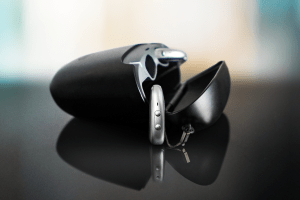College freshmen will hit campuses across the country this month, enjoying newfound freedom and, in some cases, putting on a few extra pounds, commonly known as the “freshman 15.”
Whether it’s reality, myth or something in-between (just Google it), it’s easy to see why the freshman 15 is believable.
“Starting college away from home is a major transition that involves schedule changes, added stress, new environments, different foods and so much more,” said Caroline Passerrello, a registered dietitian nutritionist and spokeswoman for the Academy of Nutrition and Dietetics. “Everyone internalizes these changes differently and, for many, it can lead to weight gain.”
Here are 10 tips to avoid college weight gain.
1. Get some sleep.
Insufficient sleep can lead to everything from irritability to chronic diseases like hypertension, according to the Centers for Disease Control and Prevention. It can also trigger the release of hormones that increase stress and spur weight gain. The CDC recommends seven hours of sleep per night, along with a consistent bedtime.
2. Drink this, not that.
Need a caffeine boost to start the day or take on a cram session? Choose unsweetened ice tea, green tea or black coffee rather than sugary energy drinks, Passerrello said. Don’t overlook water, either. Adequate hydration helps regulate bodyweight and alertness. AAA members can save up to 15% on Ready Refresh water delivery service per order of $20 or more.
3. Get moving.
Staying active is important, though students should be open to exploring different regimens. Star high school athletes not competing at the collegiate level, for example, may need new ways of exercising, while students who’ve never worked out may benefit from visiting campus fitness centers.
4. Walk don’t ride.
Along with exercise, other minor adjustments can help prevent weight gain. Instead of taking a campus shuttle, walk wherever you’re going or break up study sessions with short walks.
5. When to weigh.
Instead of daily dorm-room weigh-ins, pay attention to how your clothes fit, Passerrello said. Schedule regular visits with an on-campus registered dietitian nutritionist who will know when weigh-ins are necessary.
6. Meal plan.
Have a strategy before entering the dining hall. At breakfast, fill up on veggies, eggs and fruit before turning to waffles. Generally, half your plate should be fruits and vegetables with the other half split between whole grains and lean proteins, like turkey breast, grilled chicken and fish.
7. Join a club.
Intramural sports and activities are good ways of exercising and making like-minded friends who can help with your wellness goals.
8. Snack time.
Prepare for mid-study snack breaks by having pre-cut fruits, veggies or low-fat popcorn on hand. Fiber slows down digestion, which keeps you full. Fat slows down digestion, too, but foods like potato chips are empty calories compared with healthier options like peanut butter. Eating balanced meals throughout the day also helps decrease cravings.
9. Avoid alcohol.
Most freshmen are too young to legally drink alcohol, so consider this a heads-up for avoiding the junior or senior 15. Alcohol is high in calories and low in nutrients. Drinking impacts impulse control, too, making you more likely to grab an unhealthy snack or late-night meal.
10. Stress management.
Some students turn to food for stress relief. Passerrello recommends keeping a log of every time you eat, rating your pre- and post-meal hunger on a scale of 1 (starving) to 10 (Thanksgiving full). Aim to stay between four and seven, but keep track of when you hunger falls outside that range. Knowing when that happens may help you identify stress triggers, like upcoming exams, that can influence eating habits.
Need help with college funding? Let AAA help.














